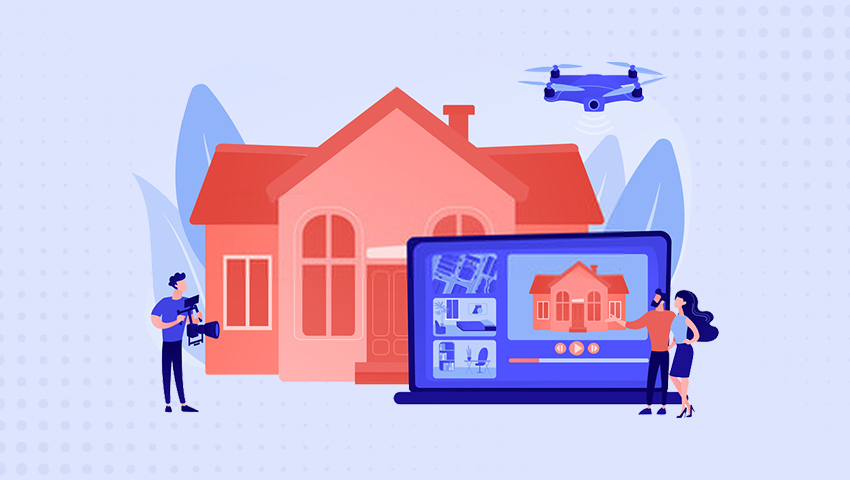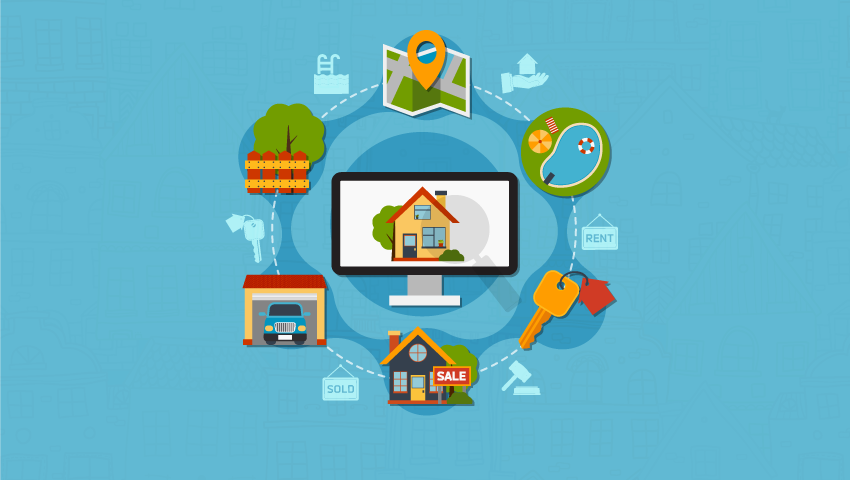The real estate market has been a cornerstone of wealth and investment in the Arab world for centuries. Traditionally, real estate transactions have been managed by centralized authorities—governments, brokerages, and listing services—that control the flow of information, approvals, and sales. However, with the rise of blockchain technology and decentralized systems, a new concept is emerging that could transform how real estate is listed, governed, and traded: Decentralized Multiple Listing Service (MLS) Governance Models.
This article will explain what decentralized MLS governance means, why it matters, how it works, and what benefits it can bring to real estate markets—especially in the Arab region. It will also explore some challenges and future possibilities for adopting decentralized governance in real estate.
What is MLS and Why Does Its Governance Matter?
To understand decentralized governance, we first need to understand the role of MLS in real estate.
A Multiple Listing Service (MLS) is a shared database used by real estate agents and brokers to list properties for sale. It allows for transparency and collaboration, as agents can see all available listings and share information with clients. Traditionally, MLS platforms are owned and controlled by central entities—usually real estate associations or companies—which set rules, control access, and regulate transactions.
The governance of MLS refers to who controls the system, how rules are made, who can participate, and how disputes are resolved. In centralized MLS, this governance is top-down, meaning decisions come from a single authority.
What Does Decentralized MLS Governance Mean?

Decentralized MLS governance uses blockchain and distributed ledger technology to shift control from a central authority to a distributed network of participants. Instead of one company or organization managing the MLS, multiple stakeholders—agents, brokers, buyers, sellers, and even developers—participate in decision-making through transparent and automated processes.
Decentralization means no single party can unilaterally change rules or manipulate listings. Instead, governance is often managed by smart contracts (self-executing contracts with the rules written in code) and decentralized autonomous organizations (DAOs)—groups governed by rules encoded on the blockchain where members vote on changes and policies.
Why is Decentralized Governance Important for MLS?
There are several reasons why decentralized governance can improve MLS platforms, especially in emerging markets like the Arab world:
1. Transparency
Blockchain records all transactions and rules changes publicly and immutably. This builds trust by ensuring everyone can verify the legitimacy of listings, transactions, and governance decisions.
2. Fairness and Inclusivity
Decentralized models allow many participants to have a say in how the system is run. This can reduce monopolistic control and create a more balanced market, giving smaller agents and buyers a voice.
3. Reduced Costs
Removing middlemen and central authorities can lower fees associated with listing and transactions. This makes real estate more accessible, especially in markets with traditionally high brokerage costs.
4. Security
Blockchain’s cryptographic security helps prevent fraud, fake listings, and unauthorized changes to property records.
5. Global Access
A decentralized MLS can connect buyers and sellers worldwide without geographic or bureaucratic barriers, opening new markets and investment opportunities.
How Do Decentralized MLS Governance Models Work?
Here’s a simplified explanation of the main components involved:
Blockchain Backbone
All MLS data—property listings, transaction history, and ownership records—are stored on a blockchain. This makes data tamper-proof and available to all participants.
Smart Contracts
Smart contracts automate key MLS functions such as listing approval, commission payments, and dispute resolution. For example, once a property is sold, the smart contract automatically transfers ownership tokens and releases payments.
Decentralized Autonomous Organizations (DAOs)
The governance decisions—like who can join the MLS network, how fees are structured, or how to resolve disputes—are managed by a DAO. DAO members, typically stakeholders like agents or investors, vote on proposals using tokens representing their voting power.
Token-Based Incentives
Participants may receive tokens for contributing to the network, such as listing properties, verifying information, or participating in governance. These tokens can be used for voting or traded on the open market.
Potential Models for MLS Decentralized Governance
There are several governance structures that decentralized MLS platforms might adopt, each with pros and cons:
1. Permissionless DAO
Anyone can join the MLS network and participate in governance if they hold the required tokens. This model maximizes openness but may face challenges in maintaining quality and trust.
2. Permissioned DAO
Only verified real estate professionals or approved participants can join and vote. This adds a layer of trust and compliance with local regulations, suitable for regulated markets like many Arab countries.
3. Hybrid Model
Combines permissioned access with token-based voting. For example, only licensed agents can list properties, but buyers and other stakeholders can vote on governance proposals.
How Can Decentralized MLS Governance Benefit the Arab Real Estate Market?
The Arab region is unique in its real estate dynamics, combining traditional values with rapid modernization and digital transformation. Decentralized MLS governance can offer specific advantages here:
1. Trust Building in a Fragmented Market
In many Arab countries, real estate markets are fragmented with many intermediaries and unclear ownership records. A decentralized MLS with transparent governance can build trust and reduce fraud, attracting more investors.
2. Empowering Smaller Agents and Buyers
Many small agents struggle to compete with large firms that dominate the listing platforms. Decentralized governance democratizes control, giving smaller players a voice and equal opportunity.
3. Cross-Border Investment
Arab investors increasingly seek opportunities beyond their borders, and vice versa. A decentralized MLS can facilitate easier cross-border transactions with transparent rules, helping regional integration.
4. Alignment with Government Initiatives
Several Gulf countries and others in the region are promoting blockchain adoption and smart city projects. Decentralized MLS platforms can integrate with these government-led digital ecosystems, enhancing innovation.
Challenges to Adopting Decentralized MLS Governance in the Arab World
Despite the benefits, some challenges must be addressed:
- Regulatory Uncertainty: Many Arab countries lack clear regulations on blockchain and decentralized platforms. Governments may hesitate to fully endorse decentralized MLS until legal frameworks are in place.
- Technology Adoption: Real estate professionals and consumers may need training and education to use decentralized platforms effectively.
- Data Privacy: Balancing transparency with privacy laws and cultural norms is essential.
- Infrastructure: Internet access and digital infrastructure vary across the region, which may limit participation in some areas.
Real-World Examples and Innovations
While decentralized MLS is a new concept, some projects and ideas are emerging globally that Arab markets can learn from or adapt:
- Propy: A global blockchain-based real estate marketplace enabling decentralized property transactions.
- RealT: A platform tokenizing real estate assets, allowing fractional ownership and decentralized governance.
- Harbor: Specializes in regulatory-compliant tokenized assets, which could integrate decentralized MLS governance.
Arab entrepreneurs and governments can explore partnerships or create localized versions of such platforms to suit regional needs and regulations.
The Road Ahead: What Should Arab Stakeholders Do?
To leverage decentralized MLS governance effectively, stakeholders in the Arab real estate market can:
- Educate and Train: Raise awareness among agents, brokers, developers, and buyers about blockchain and decentralized governance.
- Engage Regulators: Work with policymakers to develop supportive legal frameworks that protect consumers without stifling innovation.
- Pilot Projects: Launch pilot MLS platforms using decentralized governance in specific cities or free zones to test benefits and challenges.
- Invest in Infrastructure: Improve digital infrastructure and internet access to support wider adoption.
- Promote Collaboration: Encourage collaboration between tech companies, real estate firms, and government bodies to build integrated ecosystems.
Conclusion
Decentralized MLS governance models represent a promising evolution in how real estate is managed and traded. By moving control from centralized authorities to distributed networks of stakeholders, these models offer transparency, fairness, security, and inclusivity.
For the Arab world, where real estate remains a vital economic sector, embracing decentralized MLS governance could transform markets, empower smaller players, build investor confidence, and integrate regional real estate with the global digital economy.
As blockchain technology and digital assets gain momentum in the Arab region, decentralized MLS governance stands as a key innovation to watch — and an opportunity to lead in the future of real estate.













